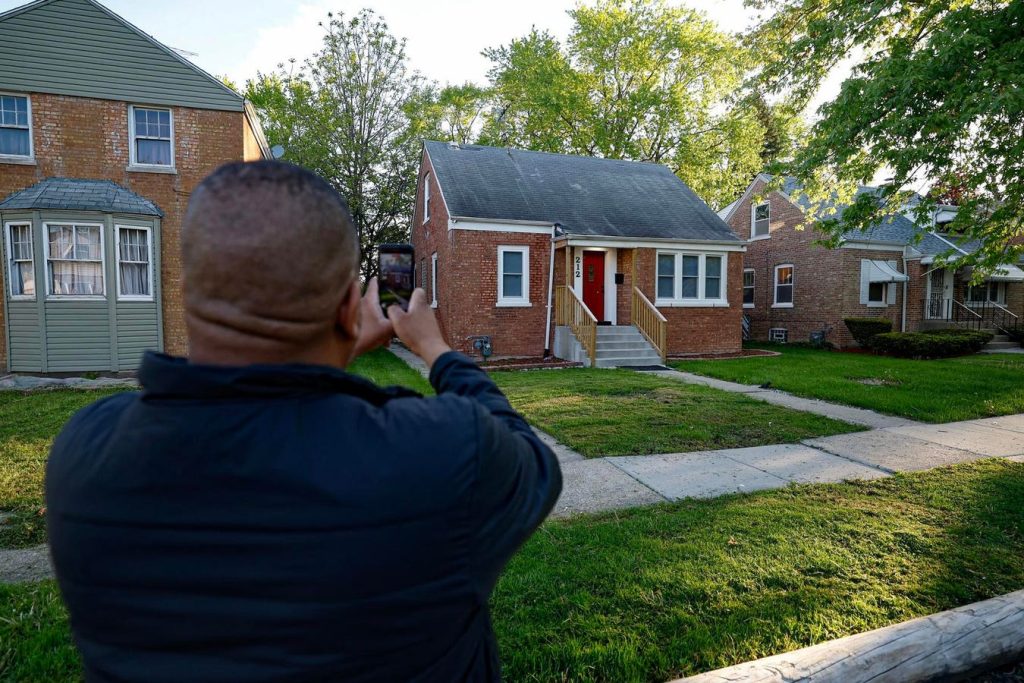Robert Prevost, who was born in 1977 in a modest home in the south-ch interior,Illinois, is now a symbol of Roman Catholic heritage. Recently, a real estate company bought his old home, repaired it, and placed it on the market. The house is expected to be sold soon, with bidders starting at $250,000. Robert, known as Pope Leo XIV, is taking the headlines, as the exact value of his childhood home is still unclear because it’s not known how much the community or property RESOURCE could bid for it.
The home, located near Dolton, is in demand, but+hopefully, the community can paint a picture. A lot of people might think, “Who’s getting rich here, why not use eminent domain to take it down?” However, Dolton officials are determined to stop this, fearing the city might use eminent domain against the home to make it publicly accessible. But how much premium will people pay for this home, and are they even entitled to any? It seems unlikely, as the home’s exact value remains elusive. The city could potentially buy it for less, depending on market conditions, but not simply based on the initial price. This raises ethical questions about who owns intellectual property and the limits of public action.
The folding of the constitution and the concept of just compensation are central to the discussion. Just compensation requires the government to “pay the ‘just compensation’ for the property, which typically refers to the price the property could fetch on the open market. However, determining that price can be complex, and government stiffs can appear when it doesn’t pay the actual market value. In this case, if the city took the home for a public sale, the “just compensation” would likely be different from the original price. The community could argue that the home’s value is what led to the sale, but it makes sense to avoid misleading people. The Church’s home is a good example—if the community had held on to the home longer, perhaps it could have come down to a more fair market price.
In the second story, Christ Episcopal is going under the radar for a sprawling public park in Toms River, New Jersey. The church’s property was involved in an effort to set up a small homeless shelter, but the town has a different plan for the property, focusing on constructing a tiki bar and jet ski rental facility instead. The town also plans to develop a nearby waterfront estate for tiki bars and jet skis.
The church and the town now have a deal: they want to use the church’s property to fulfill its religious mission, which includes care for the poor at no cost to the taxpayers. The mayor wants to make this public, but it’s been overlooked. Residents of the church’s congregation claim it’s too commercial and that the church wouldn’t care enough if they didn’t exist. However, the church is trying to win, with support from other community organizations.
The New Jersey government has been facing questions about using eminent domain when creating such plans. For instance, sometimes in areas like Connecticut, New York, or Rhode Island, courts have jitWorded whether such pre-textual takings are legitimate. In 2016, the Supreme Court ruled that some kinds of significant takings are protected by the Fifth Amendment, but other cases have been rejected. When a state allows it, courts have to ensure it doesn’t seem morally/siteational.
Despite these challenges, the Church in Toms River hopes to prevent a similar situation. The mayor wants to make its amenities freely available for residents, but he fears the Church would object. The church’sे left off saying that they have a plan to “balance the hardships” of a community without a park, and they’re hoping to create a healthier place for people to live.
In the U.S., using eminent domain to create â theft or do unfavorable uses can be problematic. For instance, if the government stiffs property even when it doesn’t pay the market price, it violates the First Amendment’s just compensation standard. Similarly, using eminent domain for unrelated businesses or purposes, even if it doesn’t appear to be violating the Constitution, could count as a taxable transaction.
The story suggests that these complex ethical and legal issues are becoming more relevant in modern American communities. As existing fiber-optic networks and overhead electric lines continue leaning heavily on Catholic services, people encounter questions about their consumer权益 and services.
In conclusion, the story highlights the tension between divinity in the built world and the moral complexities that often go und_mesitated in the private sphere. There are still cases people can, and still are scared to speak up about, as long as they have a voice..callbackDelete


